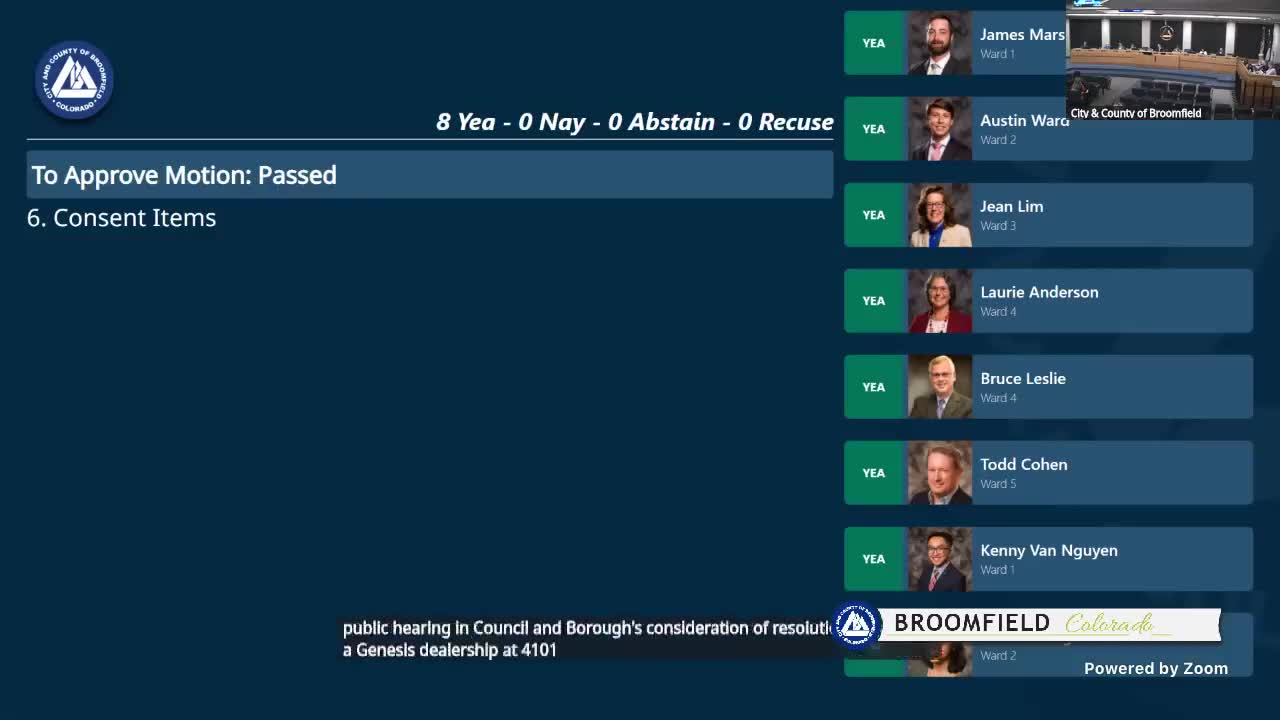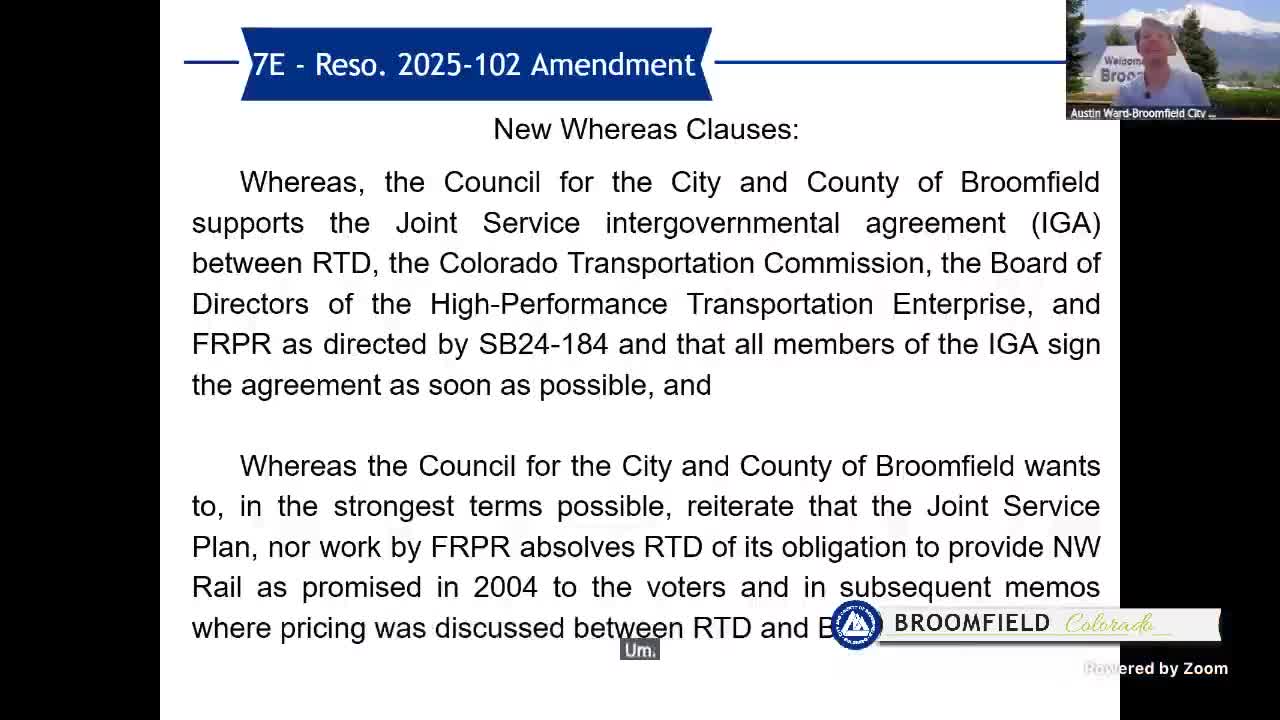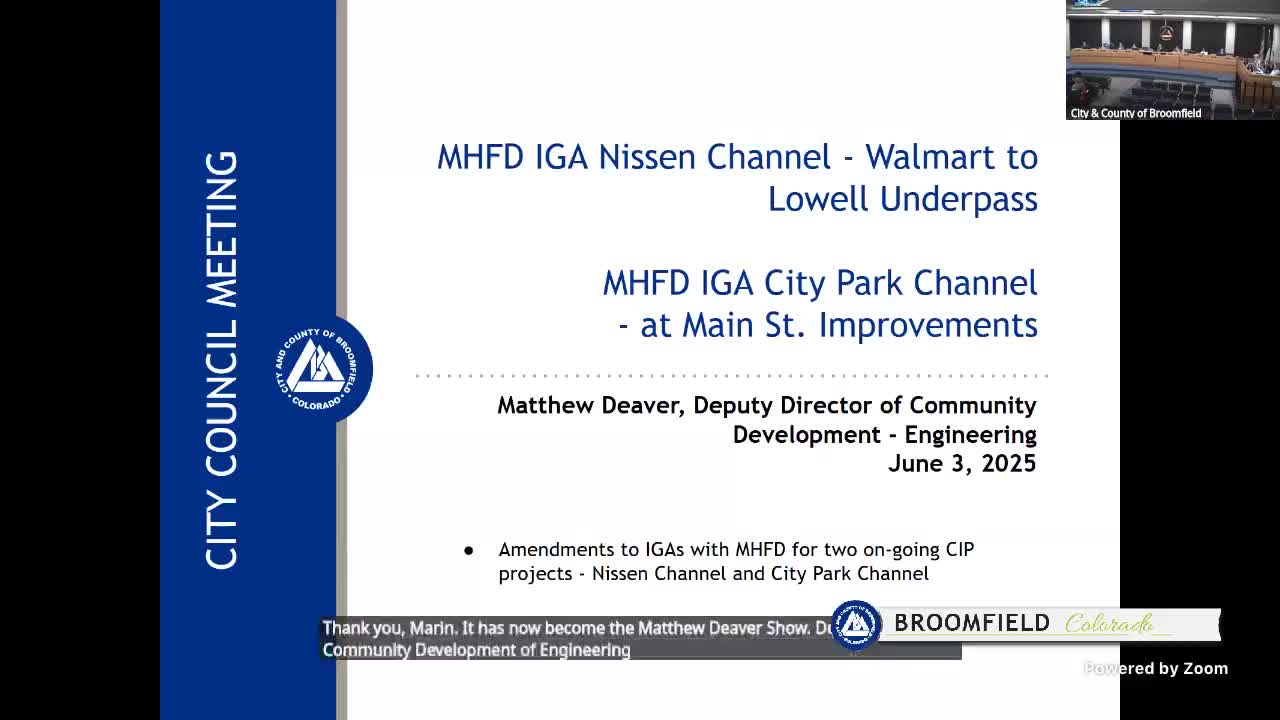Article not found
This article is no longer available. But don't worry—we've gathered other articles that discuss the same topic.

Council approves Genesis dealership planned unit development at 4101 Industrial Lane

Council approves broadband, land-use and flood-project amendments; multiple votes pass unanimously

Council postpones vote on Front Range Passenger Rail support; proponents and opponents urge caution

